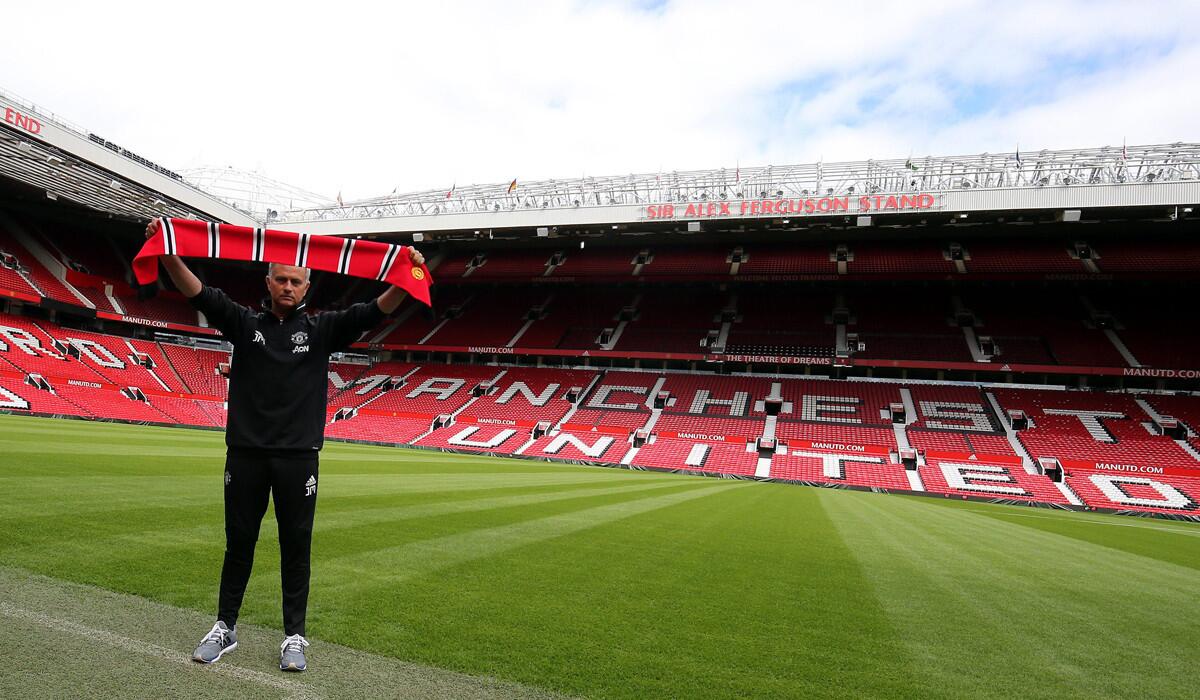‘Brexit’ vote leaves English Premier League’s future uncertain

- Share via
Nearly a month after Britons voted to leave the European Union, it’s far from a sure bet the break will ever happen.
At least that’s what British oddsmakers said last week when they gave long odds that Article 50, the two-year notice Britain must give before exiting the EU, will be triggered before 2018 – if it happens at all.
The betting parlors have been wrong before, of course. Last summer they said there was a better chance of Elvis Presley being found alive than there was of Leicester City winning the English Premier League. Nine months later the Foxes were champions while the King remained indisposed, an error that cost the bookmakers millions.
If they’re mistaken this time and Britain does leave the EU, it could be the Premier League that winds up losing. Over the last two decades the EPL has built itself into the richest and most popular sports franchise in the world, thanks in part to Britain’s membership in Europe’s 28-state economic and political union.
“There are two components to this,” said British economist Stefan Szymanski, a professor of sports management at the University of Michigan and co-author of “Soccernomics.” “One is the obvious short-term issue about currency fluctuations. And the second one is the issue about who would actually be allowed to work in the U.K. if we were to leave the European Union.”
Within days of the “Brexit” referendum’s passage, the British pound slumped to its lowest level since 1985. For the Premier League, a weak currency coupled with high taxes could cripple efforts to sign foreign players, who make up about two-thirds of EPL rosters.
Closing Britain’s borders to EU countries could also require players to negotiate an onerous series of immigration and employment checks before joining or leaving English clubs, procedures that will remain unnecessary for those moving between teams within the EU. Some of the EPL’s notable foreign stars include West Ham’s Dimitri Payet, Chelsea’s N’Golo Kante and Anthony Martial of Manchester United.
“Given the uncertain nature of what the political and regulatory landscape might be following the ‘leave’ vote, there is little point second-guessing the implications until there is greater clarity,” the EPL wrote in an email.
An official from an iconic EPL club, who was not authorized to speak on the record, also offered little clarity. “The difficulty that a lot of other clubs face is the fact there is no information out there,” he said. “It’s all very fuzzy at the moment.”
Szymanski, who said he voted to keep Britain in the EU, agrees, saying it’s far too early to begin making policy decisions.
“If I was doing a risk assessment for the Premier League right now, I would say to them in the short term nothing’s going to change,” he said. “But in the next two to three years you might need to start thinking strategically, particularly if Britain goes for the nuclear option of full departure and leaving the single market.”
An EU exit could hurt English clubs not just in their attempts to sign high-priced established players, but in acquiring young prospects as well. Although FIFA regulations prohibit international transfers for players under the age of 18, clubs in EU countries have an exemption that allows them to sign players as young as 16 – an exemption the Premier League would lose.
“Revenue is clearly tied to the quality of players that the Premier League is able to present to viewers on TV,” Babatunde Buraimo, a sports economics lecturer at the University of Liverpool, told the London Telegraph. “If those EU players weren’t present, the value of the broadcast rights would be significantly diminished.”
But others say the impact on English soccer will be minimal. Moreover, if it becomes more difficult and expensive to import foreign stars, English clubs will simply focus more on developing home-grown players.
Szymanski doesn’t believe any of those theories will ever be put to the test. The final decision to trigger Article 50 and actually leave the common market will likely fall to the British Parliament, where a majority of members continue to favor EU membership.
The Premier League club official said the teams and the league are betting Szymanski is right.
“Ultimately, what will kind of happen is common sense will prevail,” he said “and a lot of the status quo will remain.”
kevin.baxter@latimes.com
More to Read
Go beyond the scoreboard
Get the latest on L.A.'s teams in the daily Sports Report newsletter.
You may occasionally receive promotional content from the Los Angeles Times.




